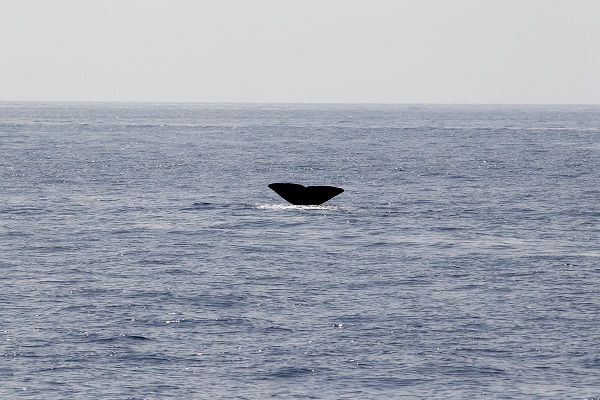mobydickbigread.com is a website. It adapts Herman Melville’s novel Moby-Dick into an online audiobook. The content is rich: what tech executives might call “trendily interactive”, in that there are Facebook groups, hipster cultural events, academic podcasts, and so on. The Guardian is heavily involved. David Cameron, Tilda Swinton, Stephen Fry and Simon Callow have all “jumped aboard”. There will be a “Whale-Fest” in Brighton.
This kind of thing doesn’t have to be your cup of tea, to admit at least that the effort is genuine. It is a fanzine for Ahab-enthusiasts, self-described as ‘an online version of Melville’s magisterial tome’. From my desk in SW9, I feel a sort of sporadic warm feeling, to know that such literary adaptation is thriving. There are so few of us online who care about Melville, it makes sense to stick together. In particular, literary experimentation should be encouraged on the web.
Technically, mobydickbigread.com is well-executed. Its creators can reasonably claim to have reminded us – good for them! – that the best criticism of an artwork is still generally to be found in other works of art.
But there are problems. The whopper is that the website does violence to Moby-Dick, to make it easier for readers. For example, it anchors each audio-recording to an oil-painting, which we are obliged to consider in juxtaposition. Like most 20th century film adaptations of Moby-Dick, the overall effect is to airbrush large parts of Melville’s text, to focus on the “good bits”; the quotable home runs; the passages that Matthew Arnold would term the ‘touchstones’ of the novel. Thus, images are foregrounded from scenes in each chapter. These are given a more powerful status in relation to the whole. The website’s deliberate motive for this – and indeed its raison d’etre – are stated didactically on its About page. It begins:
‘Moby-Dick is the great American novel. But it is also the great unread American novel.’ [My bold.]
In a nutshell, mobydickbigread.com was founded to recast the aesthetic of Moby-Dick, because whacking great stretches of the book are very boring and most people skip them. Hence the celebrity tie-ins, the obsession with iTunes and podcasts. And so on. It also explains the website’s illustrations too, which are given strong prominence next to the audio recordings.
Overall, the argument of mobydickbigread.com seems to be that literature is a series of KAPOW! moments, which can be crystallised into a single romantic image. I don’t mind this especially. I’m not ideological about it. In fact, I am an avid fan of comic books, and routinely spend my Sunday evenings trawling Ebay for second-hand graphic novels. But it seems weird in this case, because the effect is so patently the opposite of Moby-Dick‘s style. Melville’s book was deliberately machined to have long excruciating boring bits. Whole days pass, in the voyage of the Pequod, without anything significant happening at all. That’s the point. Partly, this is a byproduct of Melville’s cathedral-like prose. He has a crippling weakness for circumlocution. But partly, also, this is because this is exactly what a whaling voyage is like. Whaling is like war. It is 99 per cent waiting around, and 1 per cent terror. There is an important and mimetic quality to the flat yawning expanse of Moby-Dick, which mobydickbigread.com has done its best to obliterate.
As so often, Kurt Vonnegut said it best. Consider his gripe with a cartoonist, who focuses only on “touchstones” and momentous events:
‘[The artist’s works] were truthful about material things, but they lied about time. He celebrated moments, anything from a child’s first meeting with a department store Santa Claus to the victory of a gladiator at the Circus Maximus… But he lacked the guts or the wisdom, or maybe just the talent, to indicate somehow that time was liquid, that one moment was no more important than any other, and that all moments quickly run away.’
My argument is that – for all its admirable gloss and elbow-grease – you might say the same of mobydickbigread.com
So. Herman Melville has his moments. And he has his half-hours. And he has his aimless weekends. But we cannot quite call modern adaptors faithful, if they disfigure the bursting, pointless, baggy, encyclopedic heart of Moby-Dick. Too often, indeed, mobydickbigread.com seems to fall back on the instant sugar-rush instead of Melville’s Greatest Hits. The website is crammed with familiar points of light. (Whale-Fest! Podcasts! Stephen Fry!)
Perhaps I am being pig-headed, and antiquarian. It has happened before. It may even be that this website is the best thing to happen to Moby-Dick in 150 years. Perhaps. Either way, George Orwell reckoned that the only real test of anything is survival. So let’s see if it lasts.
p.s. Click here to see a video, courtesy of BBC Science, of a white humpback whale known as “Migaloo” swimming in the open sea.
Paul Abbott won the Newdigate Prize at Oxford University. He has published a book with Clutag Press, has another in the works, and tweets at @Paul_t_abbott






Comments